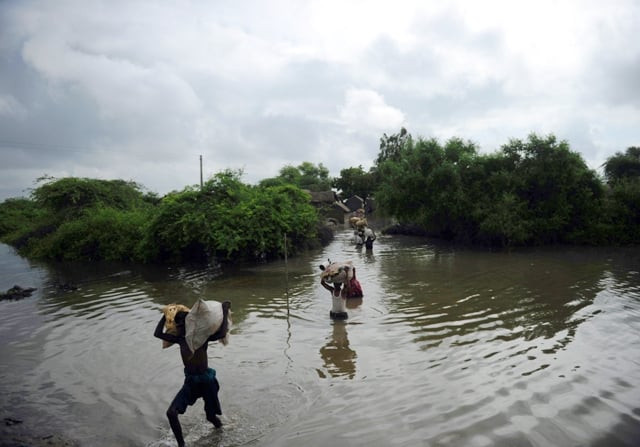Learning from the floods
The process of dispensing aid should be monitored and accounted for from end to end.

Although more than six months have passed since the flood season reached its peak, the report reveals that approximately 2.5 million people still lack adequate food and durable shelter. Families that have been unable to return home continue to huddle in makeshift accommodation in schools. About 60 per cent of schools in Sindh and Balochistan were still closed in December 2011 for this reason, disrupting education tremendously. In addition to this, poor coordination between local authorities and farmers meant the rabi (winter) crop was not planted in time and so, flood affectees who rely on farming for sustenance and revenue suffered losses.
The Oxfam report attributes some of Pakistan’s flood-related problems to poor funding, stating that the Floods 2011 Rapid Response Plan, launched by the UN on 18 September 2011, had received only 47 per cent of the requested $357 million by February 10, 2012. However, reports that surfaced in the media earlier this week reveal, the problem is not so much a lack of flood aid but rather its misappropriation. It appears that aid collection has become a prime opportunity for political agents, ill-intentioned helpers and low-level scam artists to make a killing — and so, as is most often the case in Pakistan, the real hurdle to successfully manage flood affectees has been marred with corruption and inefficiency. What is really needed is the creation of a mechanism of oversight at the lowest levels. This should be conducted by a third party, not a government body or international donor agency. And perhaps most importantly, the process of dispensing aid should be monitored and accounted for from end to end.
Published in The Express Tribune, February 20th, 2012.















COMMENTS
Comments are moderated and generally will be posted if they are on-topic and not abusive.
For more information, please see our Comments FAQ